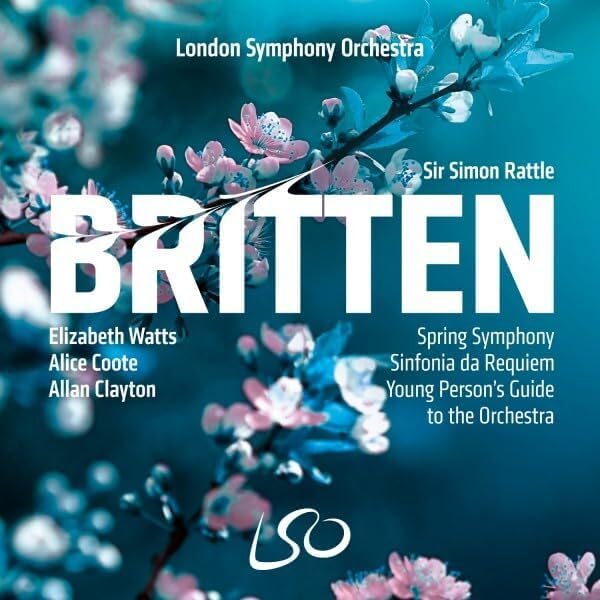 Britten: Spring Symphony, Sinfonia da Requiem, Young Person’s Guide to the Orchestra London Symphony Orchestra/Sir Simon Rattle (LSO Live)
Britten: Spring Symphony, Sinfonia da Requiem, Young Person’s Guide to the Orchestra London Symphony Orchestra/Sir Simon Rattle (LSO Live)
Here’s as good a Britten sampler as you’ll find, opening with a truly terrifying account of the early Sinfonia da Requiem. Commissioned by the Japanese government in 1939 to mark 2,600 years since the founding of the Japanese dynasty, the young Britten delivered an uncompromisingly dark showpiece, “a short symphony” nominally paying tribute to his late parents but all-too-audibly a response to global events. The Japanese authorities deemed the work inappropriate and it was instead premiered in 1941 by the New York Philharmonic under John Barbirolli. Rattle’s performance accentuates the Mahler references: the thunderous opening sounds like a direct quote from the Ninth Symphony. The LSO’s playing is superb, especially in the central “Dies irae”, here taken at a terrifying lick. After which, moving from the Sinfonia’s uneasy conclusion to the Young Person’s Guide to the Orchestra is like walking from a dark cinema into bright sunlight. Nothing quite tops Britten’s own recording, the closing fugue pushed to the limit, but Rattle’s live account is a lot of fun, the LSO’s percussionists especially impressive. You wish that Britten had composed more purely orchestral music; I’m the only person I know who thinks that his ballet The Prince of the Pagodas is as good as Peter Grimes or Billy Budd.
The biggest work here is the Spring Symphony, a Serge Koussevitsky commission completed in 1949. Scored for huge orchestral and vocal forces, it’s an unwieldy but lovable work, Britten squeezing 12 poetry settings into a four-movement scheme. Rattle relishes the quirky scoring (sample the chattering trumpets in “The Merry Cuckoo”) and the choral singing is excellent, especially that of the assorted Tiffin school choirs, chirruping away in “The Driving Boy” with soprano Elizabeth Watts. Alice Coote and Allan Clayton are also on board, the former especially affecting in Auden’s “Out on the Lawn I lie in Bed”. I love the extrovert finale, the late Chris Larkin’s cowhorn playing a prominent role and the children’s voices blasting out “Sumer is icumen in” in the final minutes. Good notes and full texts are provided, and the recorded sound has weight and clarity – a winner.
- Britten on Amazon
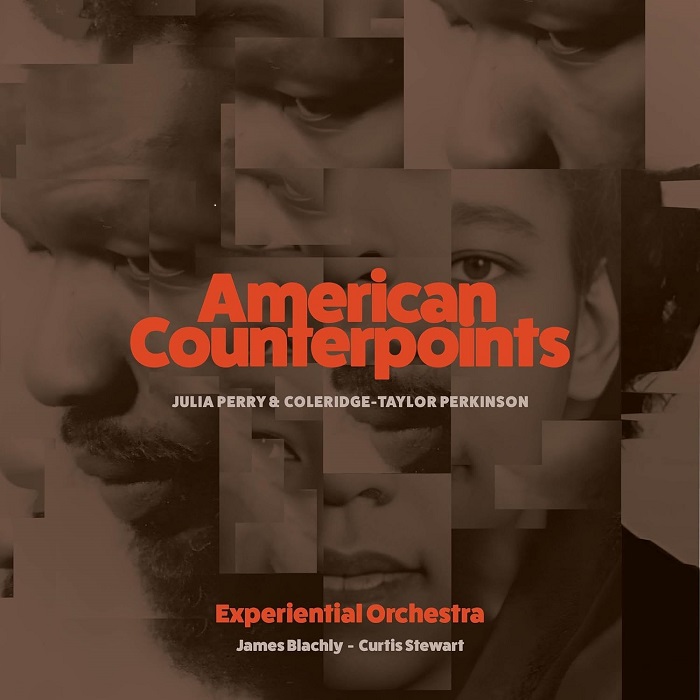 American Counterpoints Experiential Orchestra/James Blachly, with Curtis Stewart (violin) (Bright Shiny Things)
American Counterpoints Experiential Orchestra/James Blachly, with Curtis Stewart (violin) (Bright Shiny Things)
Julia Perry’s three-minute Prelude for Strings popped up on my iPod whilst driving, the music so striking that I was compelled to pull over and find out what it was. Perry (1924-1979) is ripe for rediscovery. She came from an affluent black family who encouraged her musical aspirations, Perry initially combining composing with teaching. She was awarded two Guggenheim Fellowships in the early 1950s which enabled her to travel to Europe and study with Dallapiccola and Nadia Boulanger, a period when her music became bolder and more eclectic in style. Health issues slowed Perry’s output in later years and the bulk of her output is still in manuscript form. Along with an arresting, spiky one-movement symphony scored just for basses and violas, the main discovery here is Perry’s Violin Concerto, brilliantly played here by Curtis Stewart. Accompanied by James Blachly’s Experiential Orchestra. Perry’s bright, translucent scoring makes what might seem uncompromising on paper sound enthralling. Think Berg or Hartmann. Perry sustains her large single-movement structure brilliantly, and the dizzying final pages both celebratory and fiercely dissonant. You can’t imagine the work receiving better advocacy than it gets here, Stewart and Blachly presenting the concerto as if it’s a repertoire work.
We also get music by Coleridge-Taylor Perkinson (1932-2004), born in New York to a musically talented mother who named her son after the black British composer Samuel Coleridge-Taylor. Perkinson’s long career took in collaborations with Marvin Gaye and Harry Belafonte besides conducting, teaching and writing music for films, tv and ballet. Listen blind to his Sinfonietta No. 1 and you’d think you were hearing a 20th century English string piece by the likes of Tippett or Lennox Berkeley; this is superbly crafted and engaging music with a dizzying, motoric finale. Perkinson’s We Who Seek makes for an apt closer, a remix of Perry’s hymn “Ye Who Seek the Truth”, heard earlier on the disc. Hymn fragments jostle with snatches of the violin concerto recording and a voice intoning the hymn lyrics, bringing us back into the 21st century with a jolt.
- American Counterpoints on Amazon
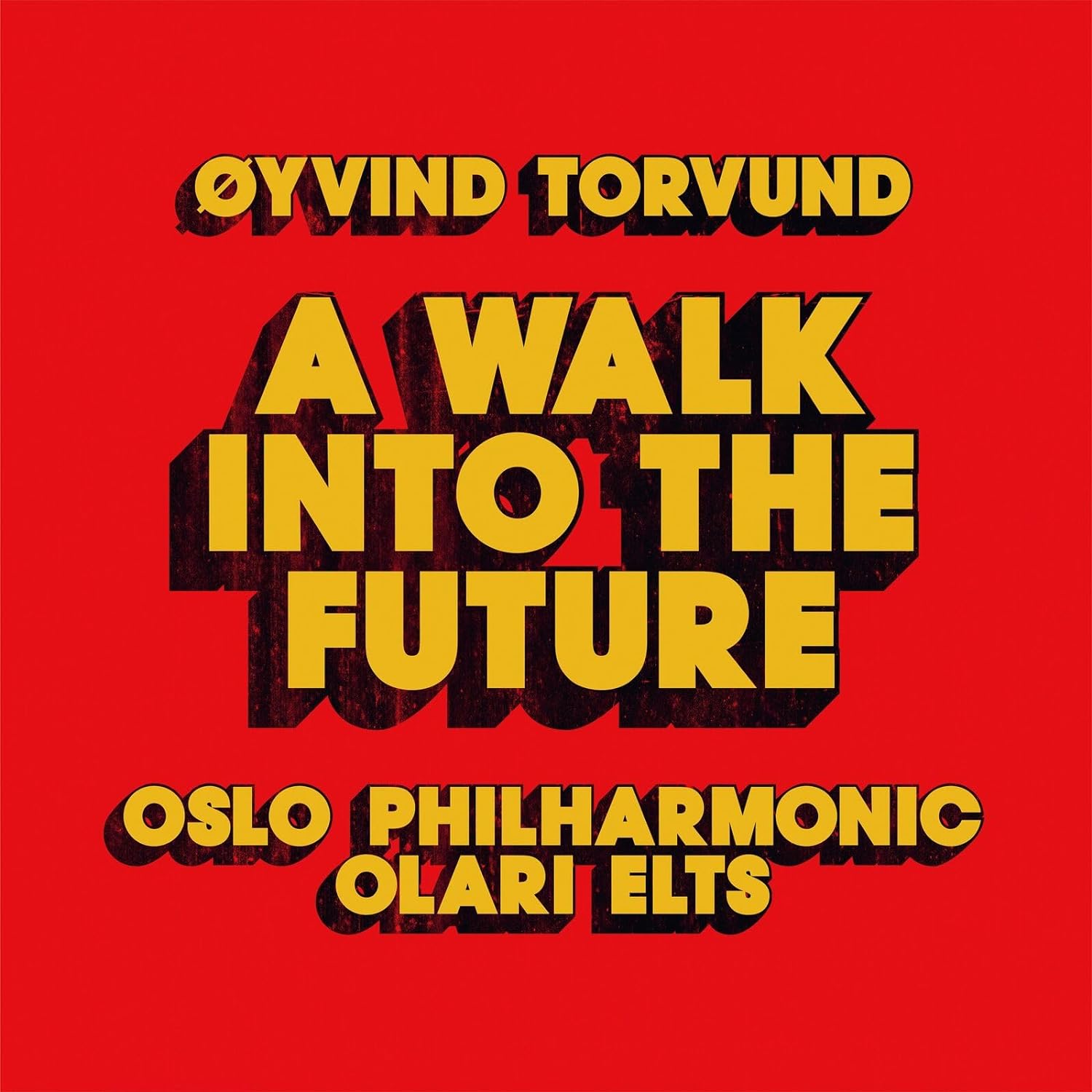 Øyvind Torvund: A Walk into the Future Oslo Philharmonic Orchestra/Olari Elts (Aurora Records)
Øyvind Torvund: A Walk into the Future Oslo Philharmonic Orchestra/Olari Elts (Aurora Records)
The extremely entertaining booklet essay for this album makes some delicious and ambitious attempts to capture the spirit of Øyvind Torvund’s music: “Maurice Ravel has somehow woken up next to a synthesizer”, “sounds that have no business being in the same place”, “robot noises, woozy exotica, and grand symphonic sweeps” and “what if an orchestra, feedback guitar, and sampler player were compeers in a postapocalyptic jam session?” They all hit the mark and at the same time fall short: it is really impossible to capture this weird (in the best way) music in words, so I shall only try a bit, and urge you to have a listen.
What is this album? Well, it’s four pieces in which the acoustic instruments of the Oslo Philharmonic do battle against electronic beeps and bops, electric guitar feedback and SFX samples in music that is by turns kitsch, avant-garde or decontextualised snippets of famous classical repertoire. Sweet Pieces is 12 movements that juxtapose restless IRCAM-like synth stuff with Hollywood orchestral swells. Archaic Jam features guitarist Jørgen Træen interpolating noise into disjointed swirls and stabs from the Oslo Phil. Symphonic Poem no.1 – Forest Morning is like a tape of Grieg’s Morning Mood that has been shredded and re-constituted by someone wearing gloves. A Walk into the Future starts with breezy whistling and marching drum, but turns into a trippy meditation on loss.
This is music that puts a smile on your face – in which it reminded me of Alex Paxton’s album Happy Music that I reviewed last year. It’s chaotic, cheeky, mismatched, unabashed, wholehearted and joyously strange. But it is not silly, or slapdash, or throwaway: Torvund is completely sincere about his nonsensicality. Of things I’ve ever reviewed I’d say: please listen to this. I hope it will make you smile. It may baffle you, or annoy you. But I don’t think it will leave you unmoved. I can’t do it justice in words, but I loved every peculiar minute of it, and I’m glad there is music like this in the world. It says: imagine Stockhausen, channelling Radio 2. Imagine Mantovani having a glitch in his matrix. Imagine Frank Zappa deciding not to take himself so seriously for once. As Jennifer Gersten’s note says, “sounds of past, present, and future enter Torvund’s compositional centrifuge and exit as an eternal Technicolour braid” – and I am here for it. Bernard Hughes
- Oyvind Torvund on Amazon
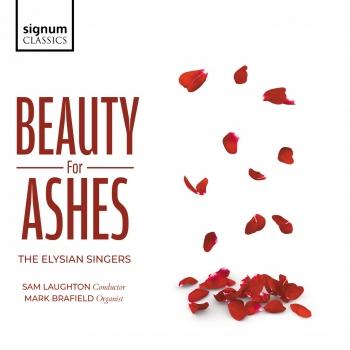 Beauty for Ashes The Elysian Singers/Sam Laughton (Signum)
Beauty for Ashes The Elysian Singers/Sam Laughton (Signum)
The Elysian Singers have been one of the jewels of London’s non-professional choral scene for nearly 40 years, and their latest album brings together contemporary sacred music from 12 living British composers. Six of these are women, including Sarah MacDonald, whose Crux fidelis makes a powerful and substantial opener, which is followed by Cheryl Frances-Hoad’s more austere and statuesque setting of Psalm 6. Alison Willis’s I sing of a maiden has a nicely medieval colouring in its harmony and circling melodic repetitions, while Owain Park’s Beati quorum via is warm and richly flavoured, Lois Gallagher’s solo soaring exquisitely over the gorgeous final chords. Judith Weir’s Leaf from leaf Christ knows sets Christina Rossetti’s childlike poem with simple choral lines, decorated by Mark Brafield’s dancing organ.
Perhaps my favourite piece – and certainly the most extraordinary on the disc – is Owen Leech’s The Lily of Heaven, which sets simultaneously for double choir both the original English and a Polish translation of a poem by E.E. Cummings. Its intertwining lines and piled up harmonies have an enveloping quality, like being wrapped in a thick duvet. It is beautifully written, and equally beautifully sung. The final number, Paul Edwards’ God be in my head, offers an ecstatic end to what is a thoughtful sequence of interesting pieces, sung by the Elysian Singers with their usual control and elegance, under the leadership of the excellent Sam Laughton. Bernard Hughes
- The Elysian Singers on Amazon
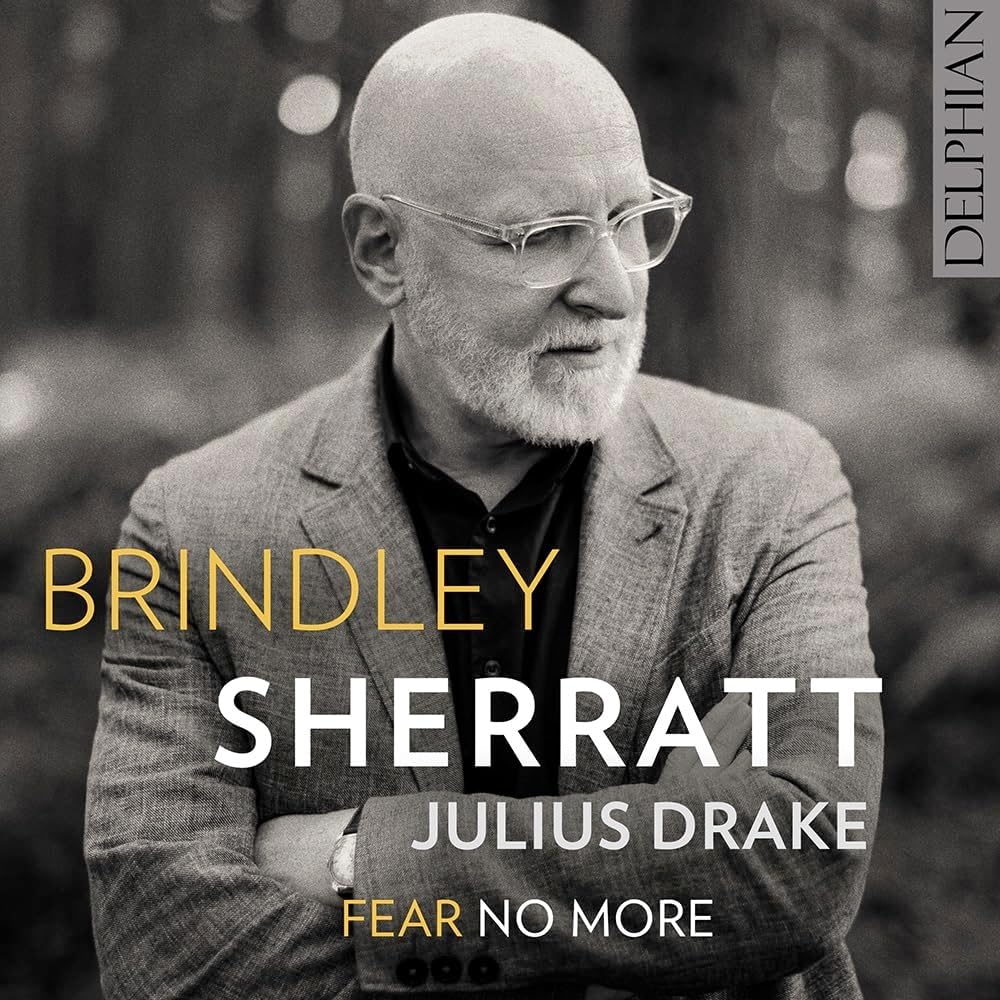 Fear No More - Songs by Schubert, Mussorgsky, Ireland, and Finzi Brindley Sherratt (bass), Julius Drake (piano) (Delphian) .
Fear No More - Songs by Schubert, Mussorgsky, Ireland, and Finzi Brindley Sherratt (bass), Julius Drake (piano) (Delphian) .
“I think all of these songs suit having a dark voice, it’s not just about showing off low notes, but about a colour,” says British bass Brindley Sherratt (b. Lancashire, 1965). And it is in the final five very well-chosen songs in English that the particular expressive power of this voice and its aura really do come into their own. The mature bass voice has a specific kind of communicative directness and warmth that other voices don't. In Masefield/John Ireland’s “Sea Fever”, ‘the seas’ to which the singer feels drawn are simply more appealing and have more gravitas about them.
In Finzi’s “Fear No More…” this splendid voice gives the listener more assurance than others can, that everything really will be all right. And in Michael Head’s “Limehouse Reach” from 1949 - a discovery for me - there is wonderful tenderness which I find I want to go back to. Julius Drake’s playing has real authority too, and Delphian Records have given writer John Fallas the space to write an excellent sleeve note. This record has also taken me back to other bass song recitals on record that have this unique quality (it really doesn’t exist anywhere else) and in particular to Martti Talvela’s albums of Toivo Kuula and the Schumann Kerner-Lieder. Sebastian Scotney
- Brindley Sherratt on Amazon
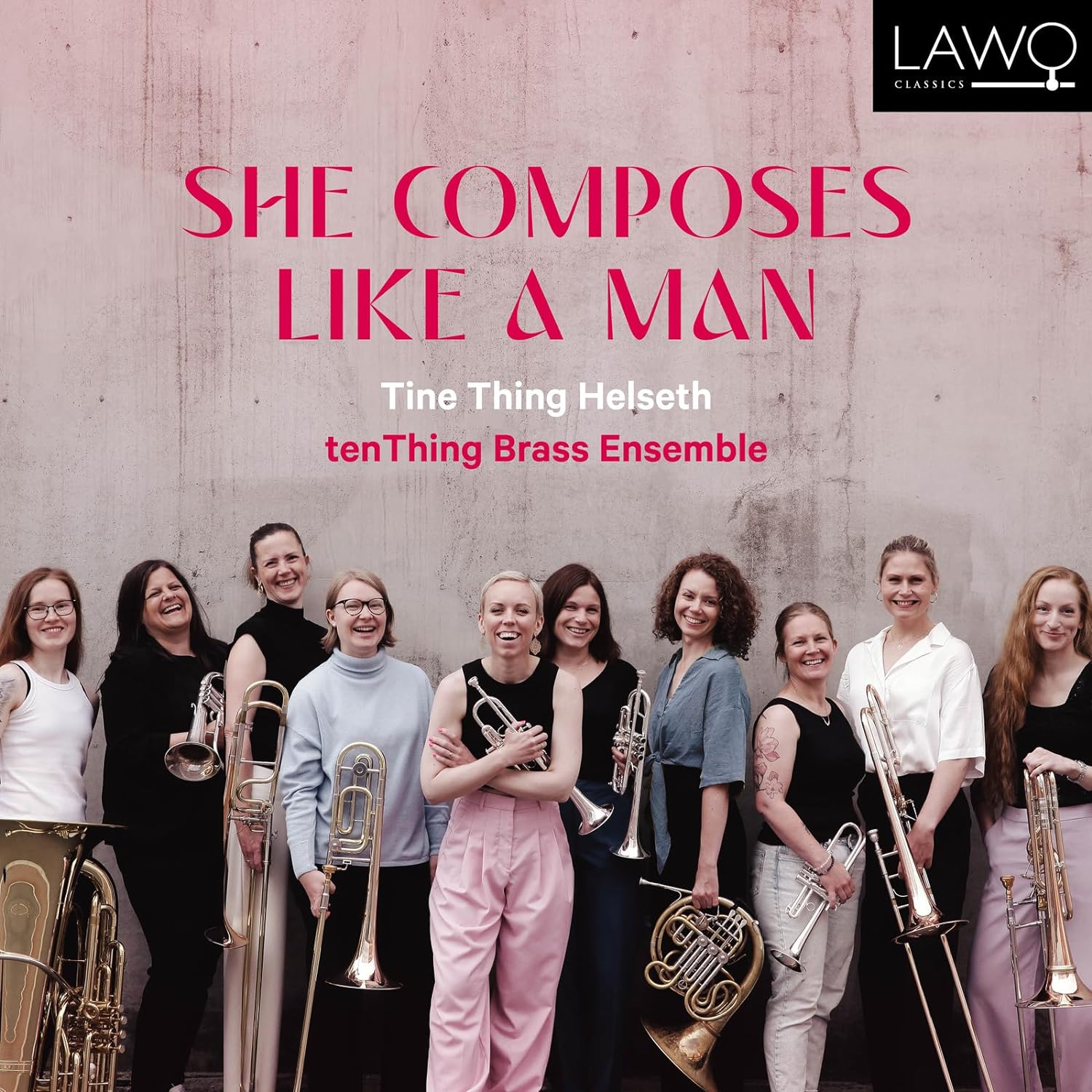 She Composes Like a Man tenThing Brass Ensemble, Tine Thing Helseth (trumpet and leader)(Lawo Classics)
She Composes Like a Man tenThing Brass Ensemble, Tine Thing Helseth (trumpet and leader)(Lawo Classics)
“She composes like a man” was intended as a huge compliment from a male critic to composer Ethyl Smyth, and it’s an apt, witty title for an album played by an all-female ten-piece brass ensemble. Norwegian trumpeter Tine Thing Helseth writes of how normal it was as a learner to play alongside girls on tuba or trombone, and her surprise that this wasn’t the case in the professional world. 18 composers are represented here, with most of the pieces skilfully arranged by Jarle Storløkken. There’s not a dud track here. It’s difficult not to grin on hearing Grażyna Bacewicz’s high-octane “Mazovian Dance”, here featuring some spectacular tonguing on low brass, and the oddly-named “Rissolty Rossolty” by Ruth Crawford Seeger builds to an exuberant, clangourous climax, sounding here more like 30 players than ten. It’s a relief to move from the Seeger to Joy Webb’s serene “Share my yoke”. Webb was a Salvation Army officer, tenThing delivering the hymn as if they were an elite northern English brass band.
More famous names include Fanny Mendelssohn and Clara Schumann (Storløkken’s transcription of the former’s “Schwanenlied” is fabulous), and Lili Boulanger’s little “Nocturne” is irresistible, followed by a perky “Cortége”. We get music by Sally Beamish, and three piano pieces by the 19th century Norwegian composer Agathe Backer Grøndahl. Have a laptop handy while listening – you’ll feel compelled to search for more information on the likes of Maria Theresia von Paradis and Mel Bonis, whose charming “La Toute Petite s’endort” provides a beguiling finale. Entertaining and educational in equal measure: this is a terrific disc.
- Tine Thing Helseth and tenThing on Amazon
- More classical music on theartsdesk

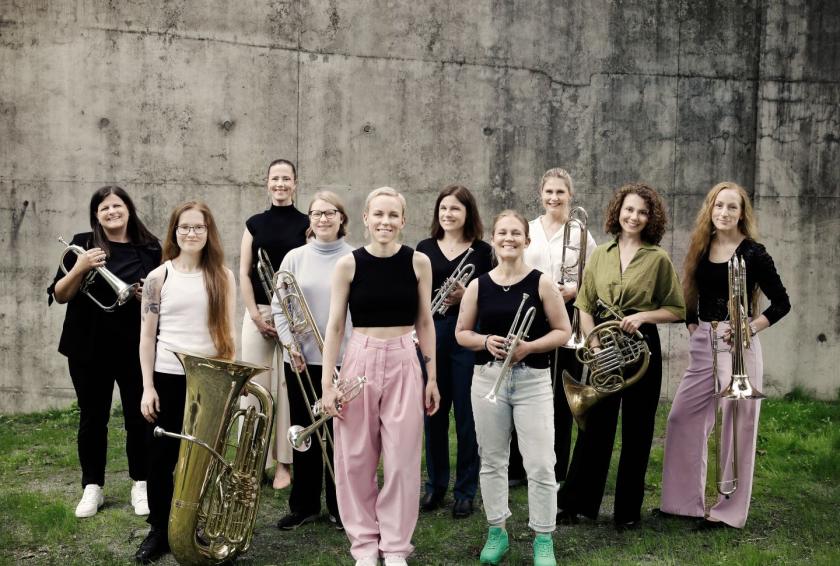












Add comment